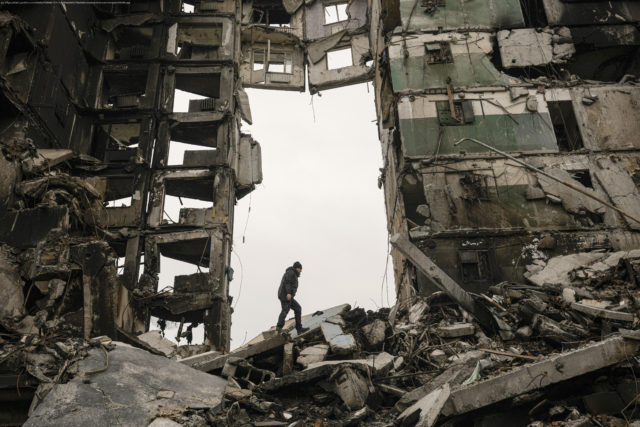The fighting on Ukrainian battlefields has disrupted the supply of energy worldwide. Some of the biggest impacts are happening in countries far from the war.The fighting on Ukrainian battlefields has disrupted the supply of energy worldwide. Some of the biggest impacts are happening in countries far from the war.
Europe was expecting to freeze when Russia invaded Ukraine. Instead, the war’s shock waves left some Asian nations in the dark.
After a year of fighting, Europe’s gas reserves are bulging and its leaders are moving forward with ambitious plans to green their economies. But it’s starkly different thousands of miles away, where poor Asian countries are scrounging for fuel after liquefied natural gas cargoes were rerouted to wealthy European markets.
Some nations, including India and Indonesia, have resorted to burning more coal — a setback for the global fight against climate change. Others, like Bangladesh and Pakistan, have endured blackouts due to abrupt fuel shortages.
One year into Russian leader Vladimir Putin’s assault on Ukraine, deep fault lines are being exposed in the global energy system — especially between rich and poor nations. Those that can afford to pay rising prices are buying up energy resources such as natural gas, while preparing for climate change by developing renewable power such as wind and solar. Those that can’t are slipping back into the grip of dirtier fuels — or going dark.
“I think there will be greater gaps between countries,” said Jane Nakano, a senior fellow at the Center for Strategic and International Studies.
The war’s impact was also felt across parts of Africa, where millions of people lost electricity as rising prices for fuel and food compounded the impacts of climate change and Covid-19.
The scramble by countries worldwide for coal, gas and oil supplies helped drive greenhouse gas emissions close to an all-time high last year, just as the clock is ticking on global climate efforts. Scientists say the world has nine years at current emissions rates until the rise in global temperatures since the dawn of the industrial era eclipses 1.5 degrees Celsius, the threshold for dire harm to people, economies and ecosystems.
Emerging economies in southern Asia, in particular, are vital to global climate efforts because their growing populations demand higher amounts of energy. They are also among the most vulnerable to the impacts of climate change.
Pakistan, a country of 220 million people, is perhaps the most dramatic example. The country, already gripped by political turmoil, experienced devastating floods last year that caused more than $30 billion in damages.
The war made it worse.
More than a quarter of the gas that Pakistan used for power plants, factories and cooking food in 2021 came from international shipments of LNG, according to data from BP. But last year, companies rerouted much of it to wealthier ports in Europe, and to richer Asian nations that could still afford the higher prices.
Nine shipments bound for Pakistan were diverted to other countries, according to the Institute for Energy Economics and Financial Analysis. Prices for imported coal also soared, prompting Pakistan to increase its domestic production of lignite — a carbon-intensive form of fuel.






